Generation sustainability: Being rich is best
Environmental researcher puts the case for growth.
Not the End of the World: How we can be the first generation to build a sustainable planet, by Hannah Ritchie.
Environmental researcher puts the case for growth.
Not the End of the World: How we can be the first generation to build a sustainable planet, by Hannah Ritchie.
A Museum of Neoliberalism has opened in London. One would expect it to celebrate how billions have been lifted out of poverty, the benefits of privatisation, the growth of free trade through globalisation, and greater freedom for individuals to pursue business opportunities.
A visit by Nina Power, a journalist from The Spectator, proved otherwise. According to its curators, neoliberalism was “an obscure and extreme ideological cult of the 1970s … which rose to power and now continues to shape all of our lives in dramatic and often terrible ways”.
Another red flag is that it is a temporary gallery staged in the Leegate Shopping Centre, south of Greenwich. Power notes it is next to a laundrette and that the derelict 1960s mall is scheduled for demolition. The museum closes on September 15.
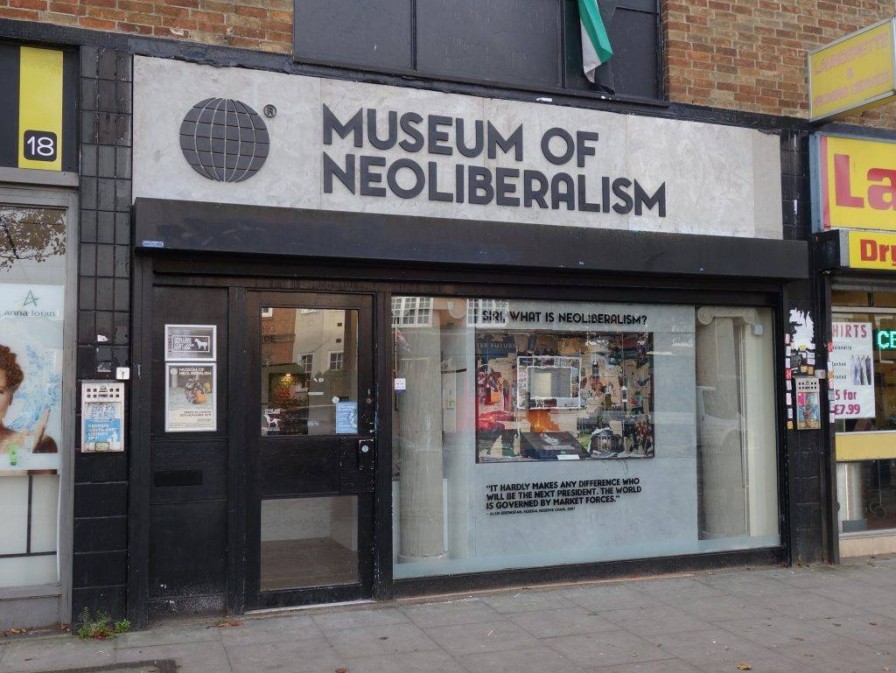
London’s Museum of Neoliberalism will close on September 15.
So, it is nothing like the permanent museums devoted to the millions of victims of, say, the Holocaust in Israel, Poland and Germany; Ukraine’s Holodomor; or those of communism throughout Eastern Europe, as well as in Canada, Washington DC and, yes, even London – although that one is virtual.
Power reports the museum emphasises that human beings are not machines, that the purpose of humanity is not to be dominated by the market, or that life is not to be ‘efficient’. One exhibit is a slice of the deadly cladding from the Grenfell tower, said to be an example of neoliberal cost-cutting.
Publishers haven’t been slow to pick up the negative vibe toward neoliberalism. Only a few weeks earlier, The Spectator alerted readers to books with titles such as The Invisible Doctrine and Vulture Capitalism.
The reviewer said the first book was about “lots of secret societies, hidden codes and deep conspiracies stretching far back in time … a kind of eco Dan Brown”. All books were obsessed with two of the founders of neoliberalism, Friedrich Hayek (The Road to Serfdom) and Milton Friedman (Capitalism and Freedom).
However, one reviewer, Matthew Lynn, argued that if neoliberals were a secret cabal running the world, they are not doing a very good job. Lynn also said Hayek’s influence was over-rated, if world governments were rated by the size of the state.
In the West, governments have a greater share of GDP than at any time in history, taxes are at a record high, and the top 10% of earners (in the UK) are paying double the proportion of taxes than in the 1970s.
If the world is in such bad shape, as these books suggest, could it be that this is because the state is too large a force in the economy, that taxes are too high, and that governments have too much control over people’s lives?
I am not suggesting you should bother with these books. Instead, I am recommending Not the End of the World, a refreshingly optimistic view of environmental and technological issues that have turned a couple of generations into ‘doomsday’ believers. These are the same generations that report historically high levels of anxiety and mental illness, and think extreme weather events signify everyone will die from climate change.
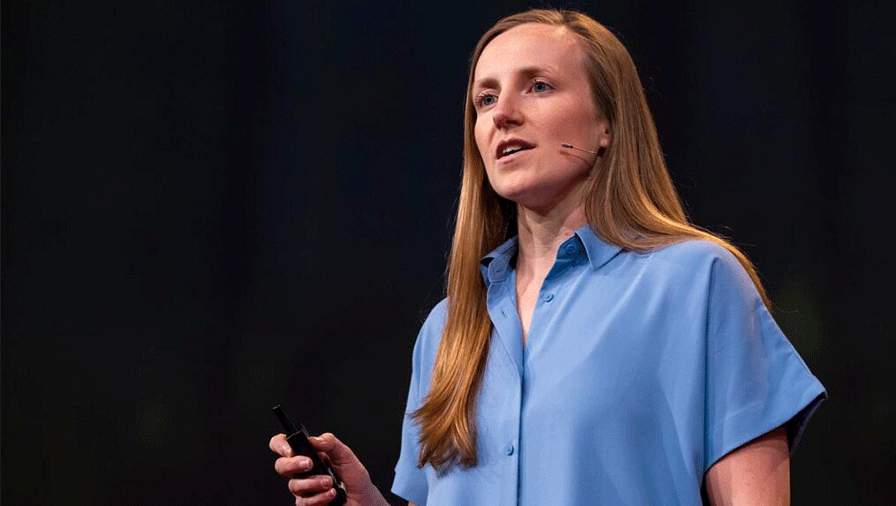
Hannah Ritchie.
The author, Dr Hannah Ritchie, is a senior researcher in the programme for global development at the University of Oxford. She is also deputy editor of Our World in Data, a fact-based online source that follows in the tradition of Factfulness, which debunks commonly held misconceptions.
The work behind book, first published in 2018 by the late Hans Rosling, is being carried on by his son Ola and his wife, Anna Rosling Rönnlund, at the Gapminder Foundation in Sweden. Ritchie says her book is something like a sequel, but with an emphasis on the environment rather than sustainability in social issues.
She describes how she all but gave up her studies in environment science because of the gloomy assumptions. But Rosling’s upside-down approach, rooted in real data, changed her mind with his examples of publicly believed myths about the state of the world. Trends in poverty, life expectancy, literacy levels, and vaccination against disease showed continual improvement. But most people believed they were getting worse.
“Researchers tend to zoom into a problem, to get as close as possible and pick it apart. We zoom out,” Ritchie says, preferring to collect data about what is already known, or would be if the information was studied and then presented so it could be easily understood.
She is pro-growth and backs technological innovation as the key to sustainability. These allow us to “decouple a good and productive life from an environmentally destructive one,’, she says. There’s no need to think people should “disappear” or return to a hunter-gatherer or medieval craft-based economy.
Ritchie chooses seven issues for detailed treatment: air pollution; climate change; deforestation; food; biodiversity; ocean plastics; and overfishing. In each case, she says, the issue is serious but solvable. In rich countries, the trends are positive even as they get richer.
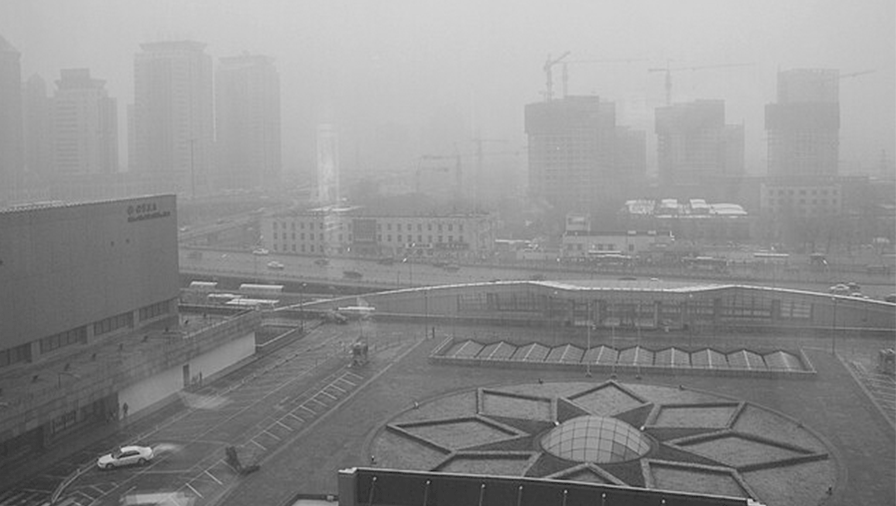
Beijing’s air pollution in 2003. Now it has clear skies.
Air pollution is a typical example of what can be done. While it remains life-threatening in places such as India, China shows it can be beaten. Will Glasgow, a reporter for The Australian who returned last week to Beijing after a four-year ban, said the biggest change he noticed was the clean air.
Earlier, action was taken against acid rain in the 1980s, and CFCs in the 1990s, to reduce ozone depletion. Holes in the ozone layer have all but disappeared.
On climate change, Ritchie points out that many of the assumptions are based on no change in human habits. She advocates all types of low or no-emission energy sources, including nuclear. Progress should be celebrated, rather than subject to detrimental debate over preferences.
This approach, which views doomsday scenarios as doing more harm than good, carries through to descriptions of the Amazon rainforest as the “lungs of the planet”. In reality, “The amount of oxygen the Amazon consumes is almost exactly the same as the amount it produces.”
As for the impact of deforestation, she points out earth is greener than ever and that calls to ban the use of fertilisers, pesticides, and genetics will only yield fewer crops – and that means greater rather than less use of land to feed a growing population.
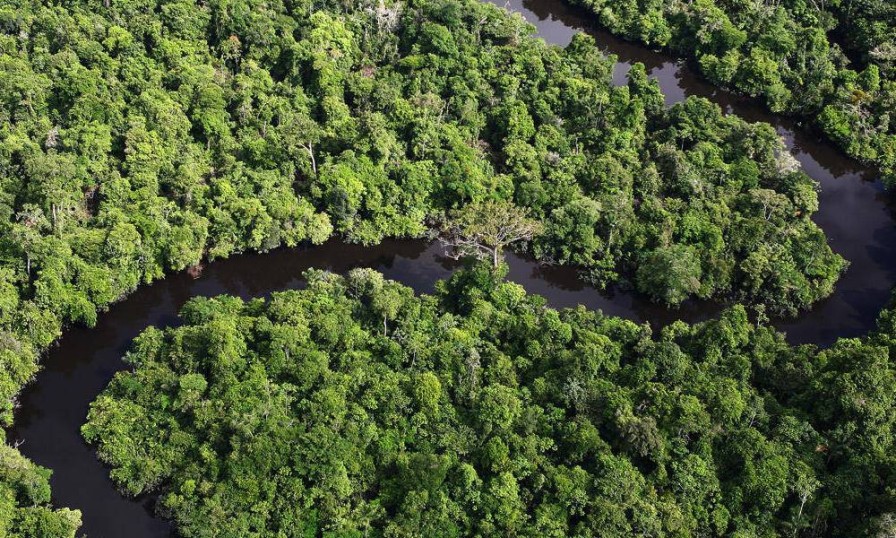
The Amazon rainforest consumes as much oxygen as it produces.
On other agricultural issues, she favours less beef and lamb in favour of pork and chicken, due to the lower carbon footprint. But she rubbishes the notion of ‘food miles’ that insists on reducing transportation of food at the expense of farming it in the most suitable places.
Biodiversity loss is “the trickiest environmental problem”, as it has been endemic in history long before climate change became as issue. The biggest wave of mammal extinctions occurred when earth had less than five million inhabitants, who were hunter-gatherers.
The switch to farming greatly increased the number of domestic animals, while reducing habitats for wild species. But even this trend does not mean extinction, thanks to the actions of governments and conservationists.
Claims of a “sixth mass extinction” after the earlier ones millions of years ago are exaggerated, given the recovery in many threatened species. Similarly, there’s no need to ban plastic wrap to save the oceans from packaging litter.
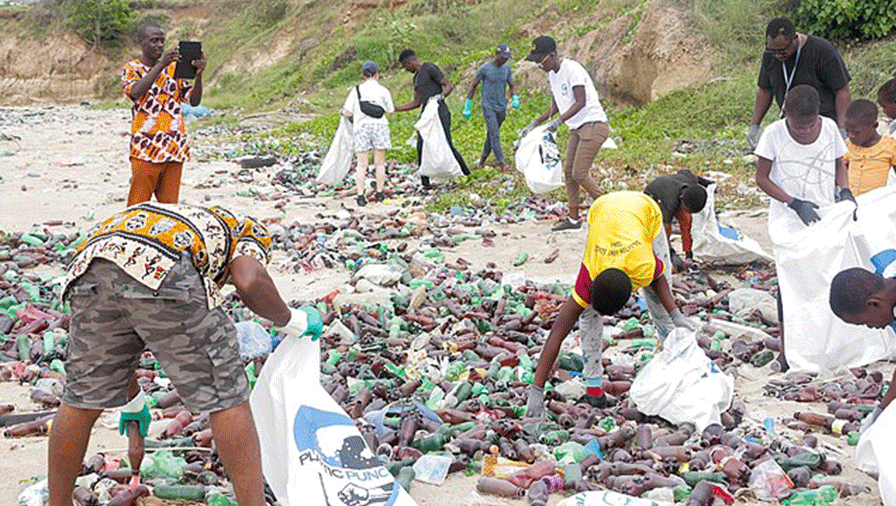
Volunteers clear ocean plastic waste in Ghana.
A Gapminder survey asked how much plastic waste ended up in the ocean. The choices were: 66% plus; about 36%; or less than 6%. The responses were 86% wrong. The correct answer was less than 6%. The actual ‘best estimate’ is 0.3%. Almost all of it is due to poor countries with seashores and inadequate waste management.
This reflects the larger picture that many of the good intentions and effort that go into recycling are wasted. Its impact on people’s carbon footprint are “pretty tiny”, Ritchie contends.
Finally, overfishing exists only among the few countries that don’t already manage their fisheries through quota systems and conservation zones. Again, the solutions exist, even if they are ignored by some. Fish production is rising because of farming.
In her conclusions, Ritchie reiterates the progress being made in all fields cited as a concern by environmentalists and doomsday merchants. The world is more sustainable than it has ever been in all aspects of human development. The richer the nation, the better its environment.
That is Ritchie’s message and if neoliberalism has a part in it, then all the more reason to recognise it in any museum.
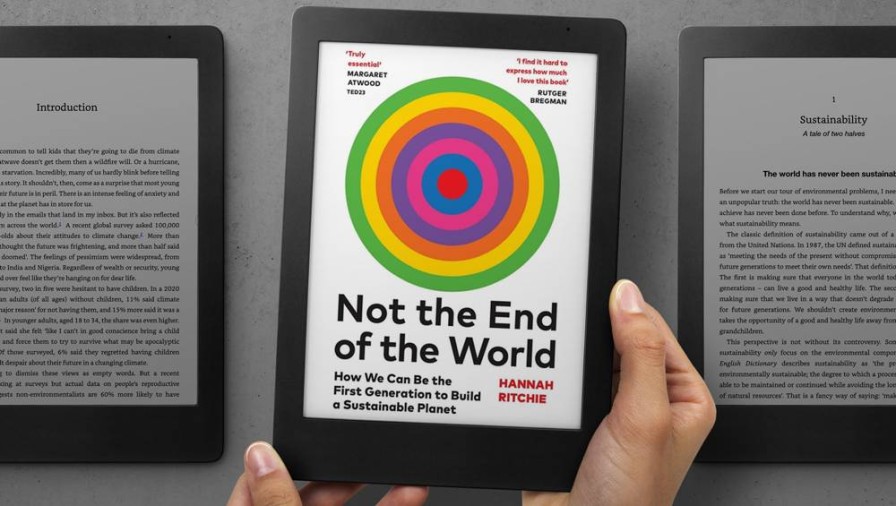
Not the End of the World: How we can be the first generation to build a sustainable planet, by Hannah Ritchie (Vintage Digital).
Further reading: Factfulness, by Hans Rosling with Ova Rosling and Anna Rosling Rönnlund (Flatiron Books, US).
Nevil Gibson is a former editor at large for NBR. He has contributed film and book reviews to various publications.
This is supplied content and not commissioned or paid for by NBR
Sign up to get the latest stories and insights delivered to your inbox – free, every day.